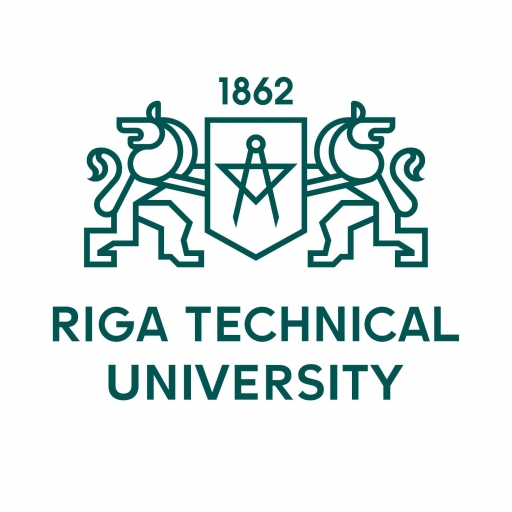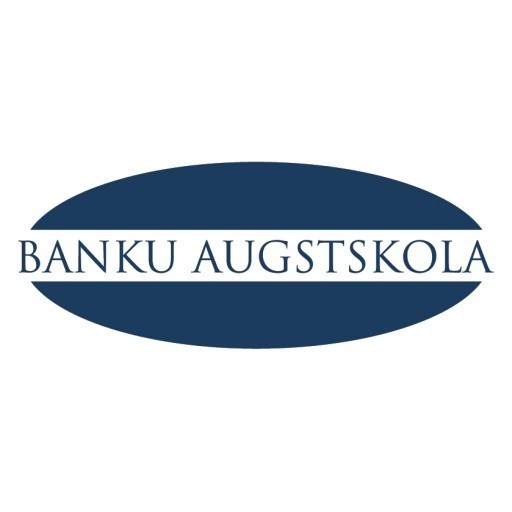Photos of university / #rtu.lv
Logistics and Supply Chain Management at Riga Technical University is a comprehensive program designed to equip students with the essential knowledge and practical skills needed to excel in the dynamic field of logistics. This degree program emphasizes the strategic and operational aspects of supply chains, covering areas such as transportation, warehousing, inventory management, procurement, and distribution. Students will gain a thorough understanding of the principles of logistics, supply chain planning, and the use of modern information technology to optimize processes and improve efficiency. The curriculum combines theoretical foundations with hands-on experience, preparing graduates to address real-world challenges in various industries, including manufacturing, retail, transportation, and international trade.
Throughout the program, students will learn about global supply chain management strategies, logistics system design, and risk management approaches. They will also develop skills in data analysis, logistics software applications, and project management. The program encourages critical thinking and problem-solving, fostering an innovative mindset necessary to adapt to constantly changing market conditions. Students will have opportunities for internships and collaboration with industry partners, providing valuable practical experience and professional networking.
The program is designed to meet the needs of students aiming to pursue careers as supply chain managers, logistics coordinators, procurement specialists, or consultants. Graduates will be well-prepared to contribute to the efficiency and competitiveness of organizations by managing supply chains effectively and implementing sustainable logistics solutions. The international focus of the program prepares students for global careers, understanding cross-border logistics and international regulations. Riga Technical University’s strong links with industry and commitment to quality education ensure that students receive a relevant, up-to-date learning experience aligned with current market trends.
The Logistics and Supply Chain Management program at Riga Technical University provides students with comprehensive knowledge and practical skills necessary for efficient planning, implementation, and control of the flow of goods, information, and resources across various industries. The curriculum is designed to prepare future professionals to meet the dynamic demands of global supply chains by integrating theoretical foundations with real-world applications. Students will explore core topics such as procurement, transportation, warehouse management, inventory control, and distribution strategies, ensuring they develop a deep understanding of how to optimize logistics processes for cost effectiveness and customer satisfaction.
Throughout the program, students engage in case studies, simulations, and project-based learning to develop problem-solving abilities and strategic thinking. The curriculum also emphasizes emerging technologies in logistics, including information systems, automation, and data analytics, to prepare students for digital transformation in supply chain operations. Additionally, the program covers essential aspects of sustainability, ethics, and risk management within logistics activities, aligning students’ competencies with current industry standards and environmental considerations.
The program advocates for a multidisciplinary approach by including courses related to business management, economics, and international trade, enabling graduates to operate effectively in global markets. Practical training is integrated through collaborations with industry partners, internships, and research projects, giving students valuable insights and professional experience. Graduates of this program will be equipped to assume roles such as logistics managers, supply chain analysts, procurement specialists, and transportation coordinators in a variety of sectors including manufacturing, retail, and services. The program's aim is to foster innovative, responsible, and competent professionals ready to contribute to the efficient functioning of supply chains and logistics networks locally and globally.
Program requirements for the Logistics and Supply Chain Management Bachelor's degree at Riga Technical University include several core prerequisites and qualifications aimed at ensuring student preparedness and program suitability. Applicants are typically required to have completed secondary education with strong performance in key subjects such as mathematics, economics, and technology. A solid foundation in mathematics is essential for understanding quantitative analysis, optimization, and modeling techniques used in logistics operations. Knowledge of economics provides an understanding of market dynamics, supply and demand principles, and business operations. Additionally, competence in information technology and computer skills facilitates engagement with specialized logistics software, data analysis tools, and management systems.
Language proficiency is also necessary, with most programs conducted in English, requiring applicants to demonstrate adequate language skills through standardized tests or prior education in English. Some programs may require relevant work experience or internships to assess practical understanding of logistics environments, although this is more common for advanced levels. Prospective students need to submit official transcripts, proof of language proficiency, and possibly a motivation letter explaining their interest in logistics and supply chain management.
The admission process may also include an interview or assessment to evaluate problem-solving capabilities and motivation. Once admitted, students are expected to meet program-specific achievement standards, including successful completion of coursework, projects, and exams across a range of subjects such as transportation, warehouse management, procurement, supply chain optimization, and information systems. Throughout the curriculum, students are encouraged to develop analytical thinking, problem-solving skills, and familiarity with modern logistics software. Overall, the program aims to equip graduates with the knowledge, skills, and competencies to operate efficiently in complex logistics and supply chain environments, addressing the evolving demands of global commerce while adhering to Latvian and EU educational standards.
The financing of the Logistics and Supply Chain Management program at Riga Technical University is primarily supported through a combination of state funding, student tuition fees, and potential external grants or sponsorships. As a public university in Latvia, RTU benefits from government allocations aimed at promoting higher education and research, which contribute to subsidizing the program's operational costs and academic resources. Students enrolled in the program may pay tuition fees, the amount of which is determined by RTU's fee structure for international and local students; these fees are used to maintain high-quality teaching, infrastructures, and access to modern technologies relevant to logistics and supply chain management.
Additionally, Riga Technical University actively seeks partnerships with industry stakeholders and logistics companies, which can provide sponsorships, internships, and project funding, thereby reducing the financial burden on students and the university itself. The university also encourages students to apply for national and European Union funding programs that support higher education, innovation projects, and regional development initiatives. Scholarships are available for outstanding students and those demonstrating financial need, further easing the economic challenges associated with studying.
The program's financing strategy emphasizes sustainability and accessibility, ensuring that talented students from diverse backgrounds can pursue their studies without prohibitive financial barriers. RTU’s commitment to fostering practical skills through industry collaborations also involves some financial support mechanisms, including grants for research, internships, and cooperative education projects. Overall, the program benefits from a multifaceted financial model, combining state support, student fees, grants, and industry cooperation, thus ensuring the continuous provision of high-quality education in logistics and supply chain management at Riga Technical University.
Logistics and Supply Chain Management at Riga Technical University is a comprehensive program designed to equip students with the necessary skills and knowledge to succeed in the dynamic field of logistics, supply chain operations, and resource management. The programme focuses on developing both theoretical understanding and practical competencies to optimize the flow of goods, information, and resources in various types of organizations and industries. Students are introduced to key concepts such as supply chain planning, procurement, transportation, warehousing, inventory management, and distribution. The curriculum also emphasizes the importance of sustainability, technology integration, and innovation within supply chain processes.
Throughout the studies, students engage with modern tools and software used for logistics planning and management, including enterprise resource planning (ERP) systems and transportation management systems (TMS). The program fosters an analytical mindset, encouraging students to solve complex logistical problems through data analysis and strategic thinking. Additionally, the curriculum includes modules on international trade, customs procedures, and legal frameworks, preparing graduates for careers in global logistics and supply chain management. Practical experience is integrated through internships, industry projects, and cooperation with logistics companies, giving students real-world insights and professional connections.
Graduates of the program are well-prepared for employment in various sectors such as manufacturing, retail, transportation, freight forwarding, and consultancy. The programme aims to develop graduates who are capable of improving supply chain efficiency, reducing costs, and enhancing customer satisfaction. Riga Technical University maintains close ties with industry partners to ensure the curriculum remains aligned with current market needs and technological advancements. The programme also encourages students to pursue further studies and research in logistics, supply chain resilience, and innovative logistics solutions. Overall, the Logistics and Supply Chain Management program at Riga Technical University is designed to produce highly qualified professionals capable of addressing the challenges of modern logistics environments in Latvia, Europe, and globally.

